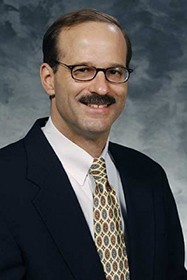
Christopher DeMarco
In January 2016, Grainger Professor of Power Engineering Christopher DeMarco received $1.9 million in research funding from the U.S. Department of Energy’s Advanced Research Projects Agency–Energy. With this grant, DeMarco and collaborators are developing data sets for realistic large-scale models of the rapidly evolving U.S. electrical power grid, enabling energy researchers to explore concrete grid-related questions such as how to effectively integrate solar and wind energy, improve energy storage technologies, and enhance electric energy markets. The team also includes Bernie Lesieutre, professor of electrical and computer engineering, and Michael Ferris, professor of computer science.
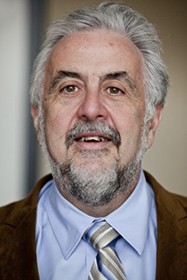
Tim Donohue
In September 2016, Great Lakes Bioenergy Research Center director and UW–Madison professor of bacteriology Tim Donohue was named the University of Wisconsin Foundation (UWF) Chairman Fetzer-Bascom professor for his research on bacteria that convert renewable nutrients into biofuels and biochemicals.
The five-year professorship, which provides annual funding for research and scholarly activities, is awarded to faculty members who have distinguished themselves through balanced contributions to university research, teaching, and service.
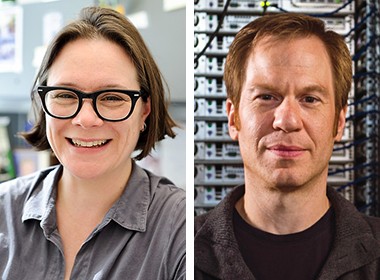
Audrey Gasch and Dane Morgan
In May 2016, associate professor of genetics Audrey Gasch and professor of materials science and engineering Dane Morgan were among 12 promising young UW–Madison faculty members to be honored with Romnes Faculty Fellowships. Romnes fellowships, which include a $50,000 research stipend, recognize exceptional faculty members who have earned tenure within the last six years. Gasch’s research explores the way cells sense and respond to environmental stresses and has diverse applications ranging from understanding how cells regulate growth control in cancer to engineering yeast for better biofuel production. Morgan’s research focuses on energy applications that include batteries, fuel cells, and nuclear materials as well as high-pressure geoscience and defect properties in semiconductors.
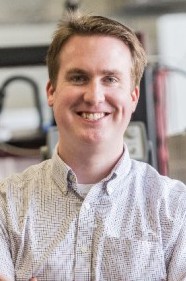
Daniel Ludois
Midwest Energy News named Daniel Ludois, assistant professor of electrical and computer engineering in UW–Madison’s College of Engineering, to its 2016 “40 Under 40” list, recognizing him as one of the Midwest’s emerging leaders in transitioning America to a clean energy economy. Ludois was one of only two academic researchers to make the list, which also included some of the region’s most influential utility executives, leaders in the non-profit sector, policymakers, and entrepreneurs. Ludois’s research focuses on high-performance power electronics and electric machines.
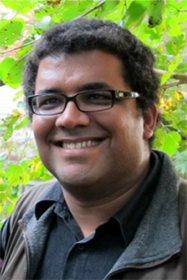
Vatsan Raman
UW–Madison assistant professor of biochemistry Vatsan Raman received a 2016 Shaw Scientist Award from the Greater Milwaukee Foundation in recognition of his innovative molecular research. Since 1982, the Shaw Scientist Program has supported young UW–Madison and UW–Milwaukee scholar-scientists engaged in biochemistry, biological science, and cancer research. The program provides researchers $200,000 over five years to pursue research that may be promising but is considered too unconventional for traditional funding. Raman hopes to unravel the molecular mystery behind allostery, a property that allows proteins to change shape by sensing and responding to signals inside a cell.
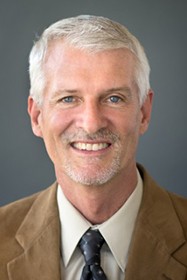
Jim Rawlings
The National Academy of Engineering (NAE) named Jim Rawlings, Paul A. Elfers professor and W. Harmon Ray professor in chemical and biological engineering at UW–Madison, to its class of new members in February 2016. The NAE’s mission is to promote national wellbeing “by marshalling the expertise and insights of eminent engineers to provide independent advice to the federal government on matters involving engineering and technology.” Election to the NAE is among the most distinguished professional achievements for engineers. Rawlings was recognized for his contributions to control engineering theory, practice, and education.

Bulent Sarlioglu
In January 2016, UW–Madison assistant professor of engineering professional development and electrical and computer engineering Bulent Sarlioglu received the National Science Foundation (NSF) Faculty Early Career Development (CAREER) award. The NSF’s most prestigious honor, CAREER rewards junior faculty who exemplify the role of teacher-scholars through the integration of education and research. Sarlioglu will use the $500,000 award to support his development of a novel and transformative motor that could ensure lower volume, weight, and cost, along with increased efficiency and reliability, in high-speed compressor systems.
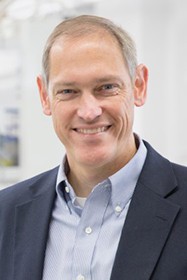
Shannon Stahl
UW–Madison chemistry professor and Great Lakes Bioenergy Research Center researcher Shannon Stahl received the 2016 Mitsui Chemicals Catalysis Science Award at the annual meeting of the Chemical Society of Japan in November 2016. Mitsui Chemicals, Inc. established the award in 2004 in order to contribute to the sustainable development of chemistry and the chemical industry. The award recognizes Stahl’s significant contributions to catalysis science as a pioneer in aerobic oxidation catalysis.
UW–Madison WiscWind Team Competes in DOE Collegiate Wind Competition
The WiscWind team, which consisted of 15 UW–Madison undergraduate students in engineering, business, and marketing, was one of 12 university teams chosen to compete in the U.S. Department of Energy’s 2016 Collegiate Wind Competition. The team placed sixth overall and performed best of the five teams new to the annual competition.
The Collegiate Wind Competition challenges interdisciplinary teams of undergraduate students to design and build a wind turbine and develop plans to market and deploy their product. The WiscWind team designed a functioning wind turbine that can attach to cellular towers in India and provide less expensive and more reliable cellular service in remote areas.
UW2020: WARF Discovery Initiative Supports Energy Research
Energy-related research is the focus of 4 of the 28 highly innovative UW–Madison research projects selected by UW–Madison’s Office of the Vice Chancellor for Research and Graduate Education to earn funding in 2016 through the UW2020: WARF Discovery Initiative. The initiative seeks to fund high-risk, high-impact research projects with the potential to fundamentally transform a field of study as well as projects requiring significant development prior to applications for external funding. UW2020 supports projects with an average award of about $300,000 over two years. Energy experts supported by this funding include:
- George Huber, professor, Department of Chemical and Biological Engineering;
- William F. Banholzer, research professor, Department of Chemical and Biological Engineering;
- James Dumesic, professor, Department of Chemical and Biological Engineering;
- Christos T. Maravelias, professor, Department of Chemical and Biological Engineering;
- Manos Mavrikakis, professor and chair, Department of Chemical and Biological Engineering;
- Michael C. Ferris, professor, Wisconsin Institutes for Discovery, Department of Computer Sciences, Department of Industrial and Systems Engineering;
- Christopher DeMarco, professor, Department of Electrical and Computer Engineering;
- Bernard Lesieutre, professor, Department of Electrical and Computer Engineering; and
- Robert J. Hamers, professor, Materials Science and Engineering.
Four UW–Madison Energy Experts Named to 2016 “Highly Cited Researchers” List
UW–Madison energy experts James Dumesic, George Huber, John Ralph, and Shannon Stahl were named to the 2016 list of “Highly Cited Researchers” in the natural and social sciences.
Compiled by Clarivate Analytics (formerly Thomson Reuters), the list honors approximately 3,000 scientists from around the globe who are most cited by their peers.
